
Find Help
More Items From Ergsy search
-

Does genetic makeup affect how coffee impacts blood pressure?
Relevance: 100%
-

Are there any other factors in coffee that may affect blood pressure?
Relevance: 69%
-

Can decaffeinated coffee affect blood pressure?
Relevance: 66%
-

Is Your Morning Coffee a Risk Factor for High Blood Pressure?
Relevance: 65%
-
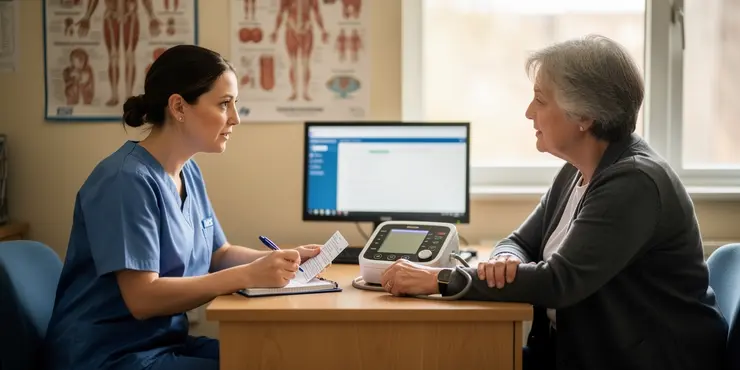
Is it safe to take blood pressure medication with coffee?
Relevance: 62%
-
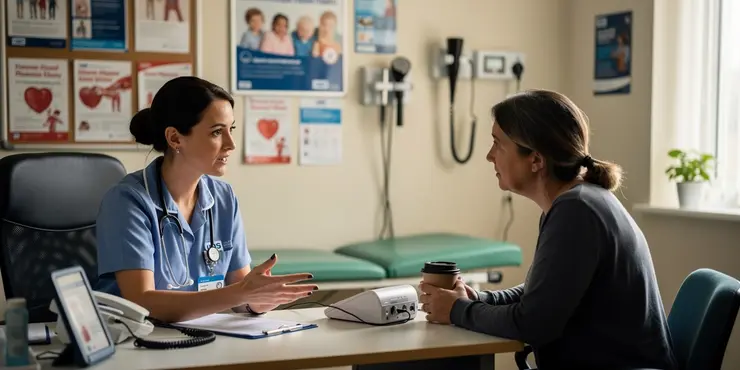
How can one minimize the impact of coffee on blood pressure?
Relevance: 59%
-

Is there a specific time of day when coffee has the most impact on blood pressure?
Relevance: 59%
-

Should people with high blood pressure avoid coffee entirely?
Relevance: 59%
-
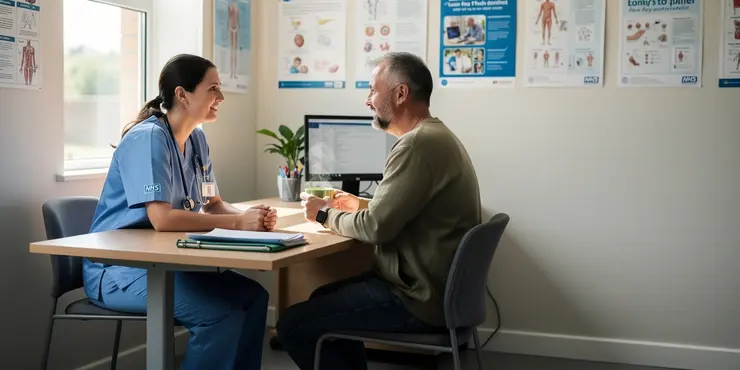
Is green tea a better alternative to coffee for blood pressure management?
Relevance: 57%
-
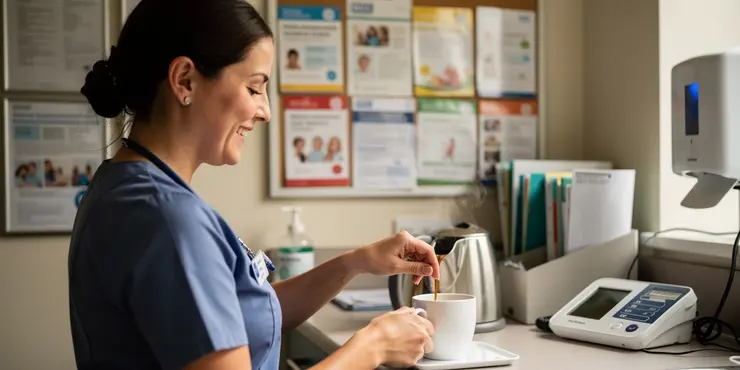
How soon after drinking coffee can blood pressure be affected?
Relevance: 57%
-

Does drinking coffee every morning increase the risk of developing high blood pressure?
Relevance: 55%
-
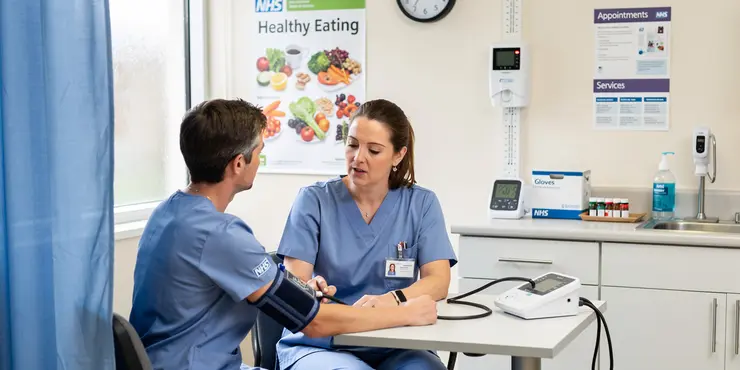
Does caffeine affect blood pressure?
Relevance: 50%
-
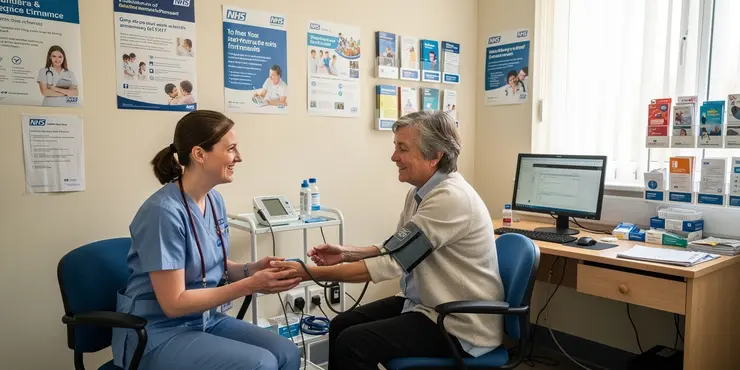
How does caffeine affect blood pressure?
Relevance: 46%
-

What causes high blood pressure?
Relevance: 46%
-

What is the link between coffee consumption and high blood pressure?
Relevance: 44%
-

How much caffeine is generally considered safe for people with high blood pressure?
Relevance: 41%
-
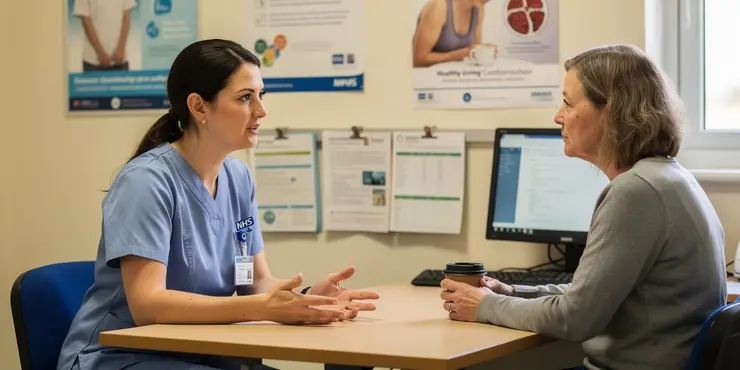
What is the recommended number of coffee cups per day for hypertensive individuals?
Relevance: 41%
-

What is high blood pressure?
Relevance: 41%
-

How does regular caffeine consumption impact tolerance and blood pressure?
Relevance: 38%
-

How does diet affect blood pressure?
Relevance: 38%
-

Does coffee consumption have any long-term heart health effects?
Relevance: 37%
-

Can high blood pressure be prevented?
Relevance: 37%
-

Seven Reaasons For Measuring blood pressure
Relevance: 36%
-

How is high blood pressure diagnosed?
Relevance: 36%
-

Can makeup with SPF replace sunscreen?
Relevance: 35%
-

Blood pressure too high? Living with hypertension animation
Relevance: 35%
-

Why is high blood pressure called a 'silent killer'?
Relevance: 35%
-

Should I test my child for high blood pressure?
Relevance: 35%
-

How to take someone's blood pressure
Relevance: 35%
-
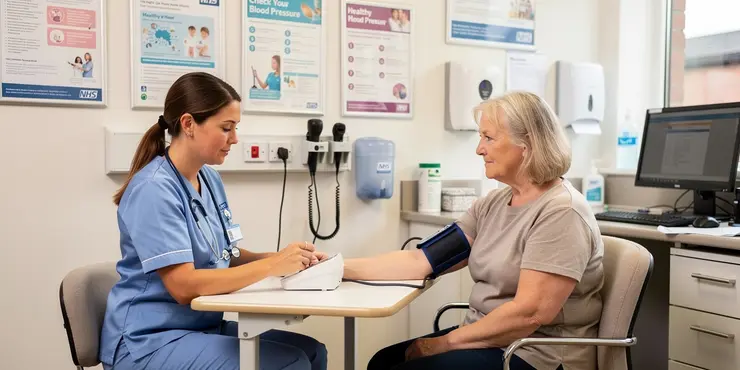
What are the risks of having high blood pressure?
Relevance: 34%
-
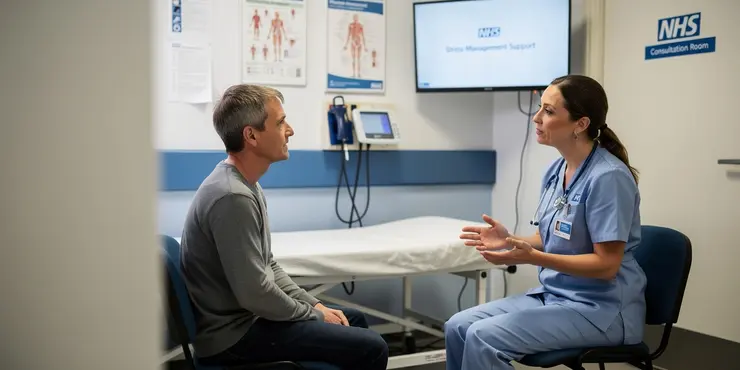
Can stress cause high blood pressure?
Relevance: 34%
-
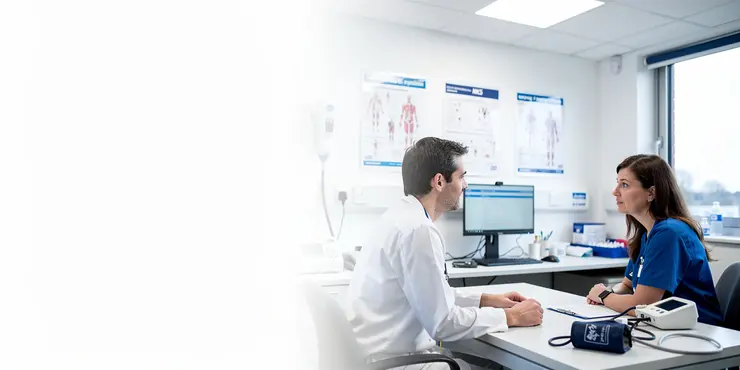
How can high blood pressure be treated?
Relevance: 34%
-

What is the role of potassium in managing blood pressure?
Relevance: 34%
-
How does salt impact blood pressure?
Relevance: 34%
-

What lifestyle changes can lower blood pressure?
Relevance: 33%
-
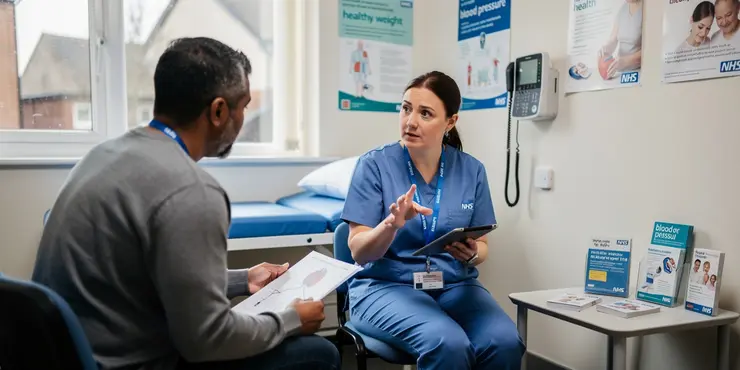
Can weight loss drugs affect blood pressure?
Relevance: 33%
-
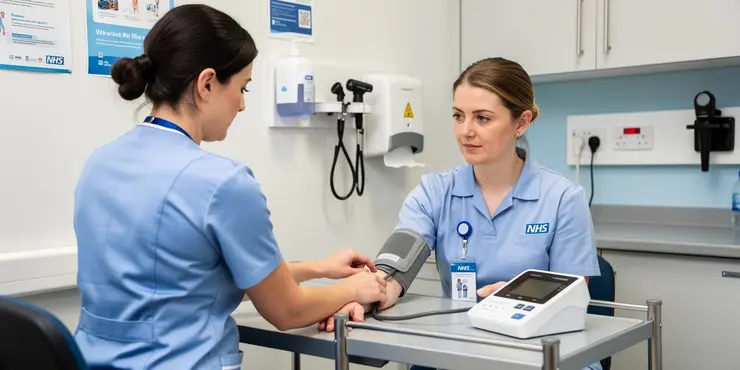
How often should I check my blood pressure?
Relevance: 33%
-

Is high blood pressure hereditary?
Relevance: 32%
-

What are the symptoms of caffeine-induced high blood pressure?
Relevance: 32%
-
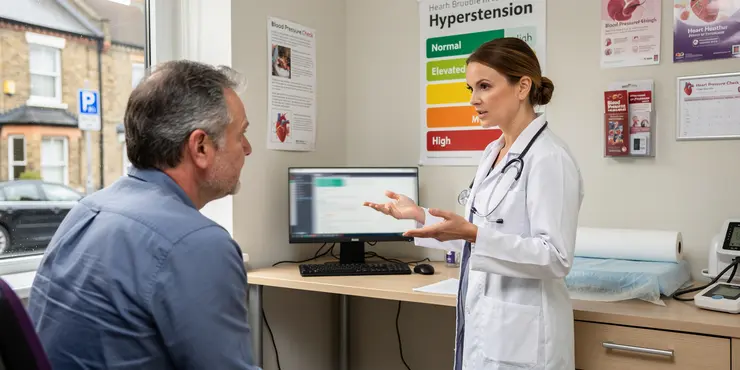
Can high blood pressure lead to other health problems?
Relevance: 32%
Introduction
Coffee is one of the most popular beverages worldwide, prized for its stimulating effects. However, its impact on blood pressure has been a topic of much debate and research, especially within the context of individual genetic variations. This leads to a critical question: does genetic makeup influence how coffee affects blood pressure?
Genetic Variations and Coffee Metabolism
Caffeine, the primary stimulant in coffee, is metabolised in the liver by an enzyme called cytochrome P450 1A2 (CYP1A2). Variations in the CYP1A2 gene can affect how quickly an individual metabolises caffeine. People with certain genetic variants metabolise caffeine more slowly, leading to prolonged exposure to its effects, while others metabolise it quickly and may experience different physiological responses.
Coffee and Blood Pressure
There have been numerous studies about the relationship between coffee consumption and blood pressure. For some, caffeine intake leads to a temporary increase in blood pressure. This effect might be more pronounced in people who do not regularly consume caffeine. In the long term, however, habitual coffee drinkers tend to develop a tolerance, and the blood pressure-raising effects diminish.
The Role of Genetics
Research indicates that genetics may significantly influence individual responses to caffeine’s effect on blood pressure. Individuals with the slow-metabolising variant of the CYP1A2 gene may see a greater and more prolonged increase in blood pressure following coffee consumption compared to those with the fast-metabolising variant. This suggests that for people with certain genetic makeups, coffee could pose a higher risk for hypertension.
Implications for Health and Lifestyle Choices
Understanding one’s genetic makeup can be crucial for making informed dietary and lifestyle choices. Those who discover they have the slow-metabolising variant might choose to moderate their coffee intake to manage their blood pressure effectively. Genetic testing, combined with professional medical advice, can help tailor recommendations for safer coffee consumption habits.
Conclusion
Genetic variations, particularly in the CYP1A2 gene, play a significant role in how coffee impacts blood pressure. While moderate coffee consumption may be perfectly safe for many individuals, those with particular genetic profiles may need to exercise caution. Further understanding and research into this relationship can help guide personalised nutritional advice, promoting better health outcomes.
Introduction
Coffee is a drink enjoyed by many people all over the world. It helps wake us up because it has something called caffeine in it. But some people wonder if coffee can affect blood pressure, which is how hard your blood pushes against your blood vessels. It's important to know if our genes, which are like instructions in our body, change how coffee affects our blood pressure.
Genes and How We Process Coffee
Caffeine is the part of coffee that makes you feel awake. Inside our body, caffeine is broken down by something called an enzyme. This enzyme has a special name, CYP1A2. Some people have different types of the gene that makes this enzyme, and it changes how fast they can break down caffeine. Some people break it down slowly, so the caffeine stays in their body longer. Other people break it down fast and might feel the effects less.
Coffee and Blood Pressure
A lot of studies have looked at what coffee does to blood pressure. For some people, drinking caffeine makes their blood pressure go up for a little while. This is more likely for people who don’t drink coffee often. But people who drink coffee a lot might get used to it, and their blood pressure doesn’t go up as much over time.
Genes and Coffee’s Effect on Blood Pressure
Research shows that our genes can change how caffeine in coffee affects our blood pressure. If you have a special version of the CYP1A2 gene that breaks down caffeine slowly, your blood pressure might go up more when you drink coffee. If you break it down quickly, it might not go up as much. So, for some people, coffee could be more risky for making blood pressure high.
Making Healthy Choices
It is important to know about our genes when we decide what to eat and drink. If someone knows their body breaks down caffeine slowly, they might decide to drink less coffee to keep their blood pressure healthy. Doctors and tests can help people learn about their genes and find out what's best for them.
Conclusion
The genes we have, like the CYP1A2 gene, can change how coffee affects our blood pressure. For most people, drinking coffee can be okay. But some people might need to be careful, especially if their genes make caffeine stay in their body longer. Understanding this can help give better advice for staying healthy.
Frequently Asked Questions
How does genetic makeup influence the effect of coffee on blood pressure?
Genetic variations can affect how your body metabolizes caffeine, which in turn can influence how coffee affects your blood pressure. For example, some genes are associated with faster or slower caffeine metabolism, affecting its duration and impact on the cardiovascular system.
Are there specific genes known to affect caffeine metabolism?
Yes, one of the most studied genes related to caffeine metabolism is CYP1A2, which influences how quickly caffeine is processed in the body. Variants in this gene can result in different responses to caffeine intake.
Can genetic tests determine my sensitivity to coffee?
Genetic tests can identify specific gene variants that may influence your sensitivity to caffeine and how it affects your blood pressure. However, responses can also be influenced by other factors, so genetic testing is just one part of the picture.
Does everyone react the same way to coffee in terms of blood pressure impact?
No, individual reactions can vary widely based on genetic differences, tolerance levels, and other health factors. Some people may experience increased blood pressure, while others may not be affected as much.
How do fast and slow caffeine metabolizers differ in coffee's impact on blood pressure?
Fast metabolizers break down caffeine quickly, which might mean less impact on blood pressure. Slow metabolizers break it down more slowly, potentially leading to higher caffeine levels in the blood and a greater impact on blood pressure.
Are there health risks for slow caffeine metabolizers who drink coffee?
Slow metabolizers may be at a higher risk for increased blood pressure and other cardiovascular issues due to prolonged exposure to caffeine's effects. They may need to moderate their coffee intake accordingly.
Is there a safe amount of coffee for everyone, despite genetic differences?
While moderate coffee consumption is generally considered safe, genetic differences mean that some people may need to adjust their intake to avoid adverse effects on blood pressure and overall health.
Can lifestyle factors override genetic predispositions to coffee sensitivity?
Lifestyle factors, such as diet, exercise, and overall health, can influence how coffee affects blood pressure, but genetic predispositions play a significant role that is not entirely overridden by lifestyle.
Does decaffeinated coffee have the same genetic considerations as regular coffee?
Decaffeinated coffee contains minimal caffeine and is unlikely to significantly impact blood pressure, making genetic differences in caffeine metabolism less relevant.
Can genetic makeup explain why some people can drink coffee before bed without issue?
Yes, genetic differences affecting caffeine metabolism can explain why some people can drink coffee late in the day without sleep disturbances, while others are more sensitive to caffeine's stimulating effects.
Is caffeine sensitivity hereditary?
Caffeine sensitivity does have a genetic component, meaning it can run in families. Genetic variations can be passed down, influencing how family members respond to caffeine.
Do other components in coffee besides caffeine affect blood pressure?
Yes, other components like antioxidants and diterpenes in coffee can also influence blood pressure, but caffeine is the main component thought to affect it due to its stimulating effects on the cardiovascular system.
Should people with high blood pressure avoid coffee due to genetic predisposition?
People with high blood pressure should consult with their healthcare provider about coffee consumption, as individual genetic predispositions may mean that coffee could exacerbate their condition.
Can coffee have different effects on blood pressure over time?
Yes, regular coffee consumption can lead to building tolerance, potentially reducing its impact on blood pressure over time. Genetic predispositions can influence how quickly tolerance develops.
How do specific genetic variants impact the way coffee affects mood and energy?
Variants in genes like ADORA2A, which affects adenosine receptors, can influence how caffeine impacts alertness and mood, in addition to its cardiovascular effects.
What role do age and genetic makeup play in caffeine sensitivity?
Age can modify the impact of genetic predispositions as metabolic processes generally slow down over time. An older individual might experience amplified effects of caffeine compared to when they were younger.
Can non-genetic factors influence how my genetics affect coffee's impact on me?
Yes, factors such as diet, medication, pre-existing health conditions, and overall caffeine consumption habits can influence how genetic predispositions manifest.
How can I find out more about my genetic predisposition to coffee sensitivity?
Genetic testing services can provide insights into your caffeine metabolism profile by analyzing relevant genes. Consulting with a healthcare professional can help interpret these results.
Are there natural genetic mutations that make certain populations more sensitive to caffeine?
Certain populations may have higher frequencies of gene variants that result in slower caffeine metabolism, impacting coffee's effects on blood pressure and overall sensitivity to caffeine.
Could differences in how coffee's flavor is perceived be related to genetic makeup?
While primarily affecting taste perception, genetic differences can influence how individuals perceive coffee's bitterness, which could also intersect with preferences and consumption patterns affecting blood pressure impacts.
How do your genes change how coffee affects your blood pressure?
Everyone has different genes. Your genes can change how your body reacts to coffee. Coffee has caffeine, which can make some people's blood pressure go up. For others, it might not change much. Your genes help decide how your body handles caffeine.
Here are some things that can help you understand better:
- Talk to a doctor if you have questions about coffee and blood pressure.
- Use pictures or videos about how coffee and blood pressure work.
- Read simple stories about people drinking coffee and feeling different changes in their bodies.
Differences in your genes can change how your body deals with caffeine. This can change how coffee affects your blood pressure. For example, some people digest caffeine faster or slower because of their genes. This changes how long caffeine stays in their body and affects their heart and blood vessels.
Do some genes change how our body handles caffeine?
Yes, there is a gene called CYP1A2. This gene helps our body use caffeine. Some people have changes in this gene. These changes can make caffeine work differently in their body.
Can a test show if I am sensitive to coffee?
Genetic tests look at your genes to see if you have special parts that might change how caffeine affects you. This could include how it changes your blood pressure. But, other things can also change how caffeine works for you. So, genetic tests are not the only thing to think about.
Does coffee affect everyone's blood pressure the same way?
Not everyone reacts to coffee the same way. Coffee can make some people's blood pressure go up, while others may not notice any change. It's different for each person.
Here is something that helps you understand how coffee might affect you:
- Pay attention to how you feel after drinking coffee.
- Ask someone, like a doctor, to help check your blood pressure.
- Try using an app or a chart to keep track of how coffee makes you feel.
No, everyone’s body reacts differently. Some people might have higher blood pressure, while others might not. This can depend on things like genes and health.
How does coffee change blood pressure in different people?
Some people break down coffee fast, and some do it slow.
These two groups feel different changes in blood pressure when they drink coffee.
Use pictures or videos to help you understand better.
Some people's bodies use caffeine quickly. For these people, caffeine might not change blood pressure much. Other people break down caffeine slowly. For them, caffeine might stay in the body longer and change blood pressure more.
Is it bad for your health if you break down caffeine slowly and drink coffee?
Some people process caffeine slowly. This might lead to high blood pressure and heart problems because caffeine stays in their body longer. These people may need to drink less coffee.
Can everyone drink some coffee safely even if their bodies are different?
Some people can drink coffee safely. But our bodies are different because of our genes.
- Genes are like instructions inside our bodies.
- They can make us feel different from each other when we drink coffee.
It is good to ask a doctor if you are not sure.
Tools that help:
- Picture cues: Use pictures to show how much coffee is safe.
- Color coding: Use colors to show safe and unsafe amounts.
Drinking a little coffee is usually okay for most people. But because everyone is different, some people might need to drink less coffee to stay healthy and keep their blood pressure normal.
Can the way you live change how your body reacts to coffee?
Things like what you eat, how much you move, and how healthy you are can change how coffee affects your body. Coffee can change your blood pressure, which is how hard your heart works. But your genes, which you get from your parents, are very important too. What you do to be healthy helps, but your genes still matter a lot.
For help, you can use tools like picture cards to remember healthy things to eat. You can also try apps that remind you to exercise. Ask a friend or family member to help you stay healthy too!
Is decaffeinated coffee the same for your body as regular coffee?
Decaf coffee has very little caffeine. It probably won't change your blood pressure much. This means that if your body processes caffeine differently because of your genes, it doesn't matter as much with decaf.
Why can some people drink coffee before bed and still sleep?
Some people can drink coffee at night and still go to sleep easily. This might be because of their special body make-up called "genes." Genes are like instructions inside us that make us who we are.
If you find it hard to read or understand things, you can:
- Use a ruler or your finger to help you follow the words.
- Read slowly and say the words out loud.
- Ask someone you trust to read with you.
Genes are like tiny instructions inside our bodies. They can change how we react to coffee. This is why some people can drink coffee at night and still sleep well. But other people feel awake if they drink coffee too late. This is because their bodies handle caffeine, the part of coffee that makes you feel awake, in different ways.
If reading is hard, try using tools like audiobooks or reading apps that read aloud to help you understand more easily.
Does caffeine sensitivity run in families?
Some people can drink coffee or soda and feel fine. Others feel shaky or cannot sleep. This might be because of their family. If your mom or dad is sensitive to caffeine, you might be too.
To help understand more:
- Ask family members how caffeine affects them.
- Try a small amount of caffeine slowly to see how you feel.
- Talk to a doctor if you feel unsure.
Being sensitive to caffeine can run in families. This means if your family is sensitive to caffeine, you might be too. It's because of a thing called genes, which are like tiny instructions inside our bodies that get passed down from parents to kids.
Can parts of coffee, not just caffeine, change blood pressure?
Coffee has many parts. One part is caffeine. Some people wonder if other parts of coffee can change blood pressure too.
For help reading: Use big letters or read with a friend. This can make it easier to understand.
Yes, there are other things in coffee, like antioxidants and some special oils, that can also change blood pressure. But caffeine is the main thing that people think changes blood pressure because it makes our heart and blood vessels work harder.
Is it safe for people who have high blood pressure to drink coffee if their genes make them more likely to have this condition?
Some people have high blood pressure. This means their heart works extra hard to pump blood. Drinking coffee can make this worse for some people.
Our genes, which we get from our parents, can make us more likely to have high blood pressure. If your parents or grandparents had it, you might have it too.
If you have high blood pressure, ask a doctor if it's okay to drink coffee. They can give advice just for you.
Use apps or charts to track your blood pressure. This helps see if coffee is safe for you.
Remember, listening to your body is important. If coffee makes you feel bad, tell a doctor.
If you have high blood pressure, talk to your doctor about drinking coffee. Your body might react differently to it, and it could make your high blood pressure worse.
Does coffee change blood pressure over time?
Coffee can change how your blood pressure works. This can be different for each person.
When people drink coffee, it might make their blood pressure go up for a bit. Then, it can come back down.
Everybody is different, so coffee may not change blood pressure in the same way for everyone.
Tools like blood pressure monitors can help you see how your blood pressure changes. They can be useful if you want to check how coffee affects you.
If you have questions, you can talk to a doctor or nurse. They can give you good advice.
Yes, drinking coffee every day can make your body get used to it. This means coffee might not make your blood pressure go up as much after a while. Your genes, or things passed down from your family, can make your body get used to coffee faster.
How do certain genes change how coffee makes us feel?
Some people have special parts in their genes. These can change how they feel after drinking coffee.
Genes can make coffee give more energy to some people and make others feel sleepy.
If it’s hard to understand, you can talk to someone for help. Drawing pictures or using storyboards can also make it easier.
Changes in genes like ADORA2A can change how caffeine makes you feel awake and happy. It can also change how caffeine affects your heart and blood.
How do age and genes affect how sensitive we are to caffeine?
As we get older, our body changes. Things inside our body slow down. This means something like caffeine might affect an older person more than it did when they were younger.
Can things other than genes change how coffee affects me?
Yes, many things can change how our genes work. What we eat, the medicine we take, any health problems we already have, and how much caffeine we drink all play a part.
If reading is hard, try listening to the information. There are apps that can read text for you.
How can I learn more about how my genes make me sensitive to coffee?
Here is a simple way to learn:
- Talk to a doctor. They can help you understand your genes.
- Do a special test for your genes. It can tell you if coffee is good or not for you.
- Read books or watch videos on genes and coffee.
Tools to help:
- Use apps that talk out loud. They can read the text to you.
- Ask someone to explain big words or hard ideas.
Genetic tests can tell you how your body handles caffeine by looking at your genes. Talking to a doctor or nurse can help you understand what this means for you.
Do some people have special genes that make them feel caffeine more?
Some people might have special genes in their bodies. These genes can make them feel caffeine stronger. Caffeine is in drinks like coffee and tea. It makes some people feel awake.
If reading is hard, try using a pen to point at words. Or ask someone to read with you.
Some people have different genes that can make them process caffeine more slowly. This can change how coffee affects their blood pressure and how their bodies react to caffeine.
Can our genes change how coffee tastes to us?
Genes can change how people taste things. This means some people might find coffee more bitter than others. This can change how much coffee they like to drink. If they drink a lot or a little coffee, it can change their blood pressure.
Useful Links
This website offers general information and is not a substitute for professional advice.
Always seek guidance from qualified professionals.
If you have any medical concerns or need urgent help, contact a healthcare professional or emergency services immediately.
Some of this content was generated with AI assistance. We’ve done our best to keep it accurate, helpful, and human-friendly.
- Ergsy carfully checks the information in the videos we provide here.
- Videos shown by Youtube after a video has completed, have NOT been reviewed by ERGSY.
- To view, click the arrow in centre of video.
- Most of the videos you find here will have subtitles and/or closed captions available.
- You may need to turn these on, and choose your preferred language.
- Go to the video you'd like to watch.
- If closed captions (CC) are available, settings will be visible on the bottom right of the video player.
- To turn on Captions, click settings .
- To turn off Captions, click settings again.
More Items From Ergsy search
-

Does genetic makeup affect how coffee impacts blood pressure?
Relevance: 100%
-

Are there any other factors in coffee that may affect blood pressure?
Relevance: 69%
-

Can decaffeinated coffee affect blood pressure?
Relevance: 66%
-

Is Your Morning Coffee a Risk Factor for High Blood Pressure?
Relevance: 65%
-

Is it safe to take blood pressure medication with coffee?
Relevance: 62%
-

How can one minimize the impact of coffee on blood pressure?
Relevance: 59%
-

Is there a specific time of day when coffee has the most impact on blood pressure?
Relevance: 59%
-

Should people with high blood pressure avoid coffee entirely?
Relevance: 59%
-

Is green tea a better alternative to coffee for blood pressure management?
Relevance: 57%
-

How soon after drinking coffee can blood pressure be affected?
Relevance: 57%
-

Does drinking coffee every morning increase the risk of developing high blood pressure?
Relevance: 55%
-

Does caffeine affect blood pressure?
Relevance: 50%
-

How does caffeine affect blood pressure?
Relevance: 46%
-

What causes high blood pressure?
Relevance: 46%
-

What is the link between coffee consumption and high blood pressure?
Relevance: 44%
-

How much caffeine is generally considered safe for people with high blood pressure?
Relevance: 41%
-

What is the recommended number of coffee cups per day for hypertensive individuals?
Relevance: 41%
-

What is high blood pressure?
Relevance: 41%
-

How does regular caffeine consumption impact tolerance and blood pressure?
Relevance: 38%
-

How does diet affect blood pressure?
Relevance: 38%
-

Does coffee consumption have any long-term heart health effects?
Relevance: 37%
-

Can high blood pressure be prevented?
Relevance: 37%
-

Seven Reaasons For Measuring blood pressure
Relevance: 36%
-

How is high blood pressure diagnosed?
Relevance: 36%
-

Can makeup with SPF replace sunscreen?
Relevance: 35%
-

Blood pressure too high? Living with hypertension animation
Relevance: 35%
-

Why is high blood pressure called a 'silent killer'?
Relevance: 35%
-

Should I test my child for high blood pressure?
Relevance: 35%
-

How to take someone's blood pressure
Relevance: 35%
-

What are the risks of having high blood pressure?
Relevance: 34%
-

Can stress cause high blood pressure?
Relevance: 34%
-

How can high blood pressure be treated?
Relevance: 34%
-

What is the role of potassium in managing blood pressure?
Relevance: 34%
-
How does salt impact blood pressure?
Relevance: 34%
-

What lifestyle changes can lower blood pressure?
Relevance: 33%
-

Can weight loss drugs affect blood pressure?
Relevance: 33%
-

How often should I check my blood pressure?
Relevance: 33%
-

Is high blood pressure hereditary?
Relevance: 32%
-

What are the symptoms of caffeine-induced high blood pressure?
Relevance: 32%
-

Can high blood pressure lead to other health problems?
Relevance: 32%


